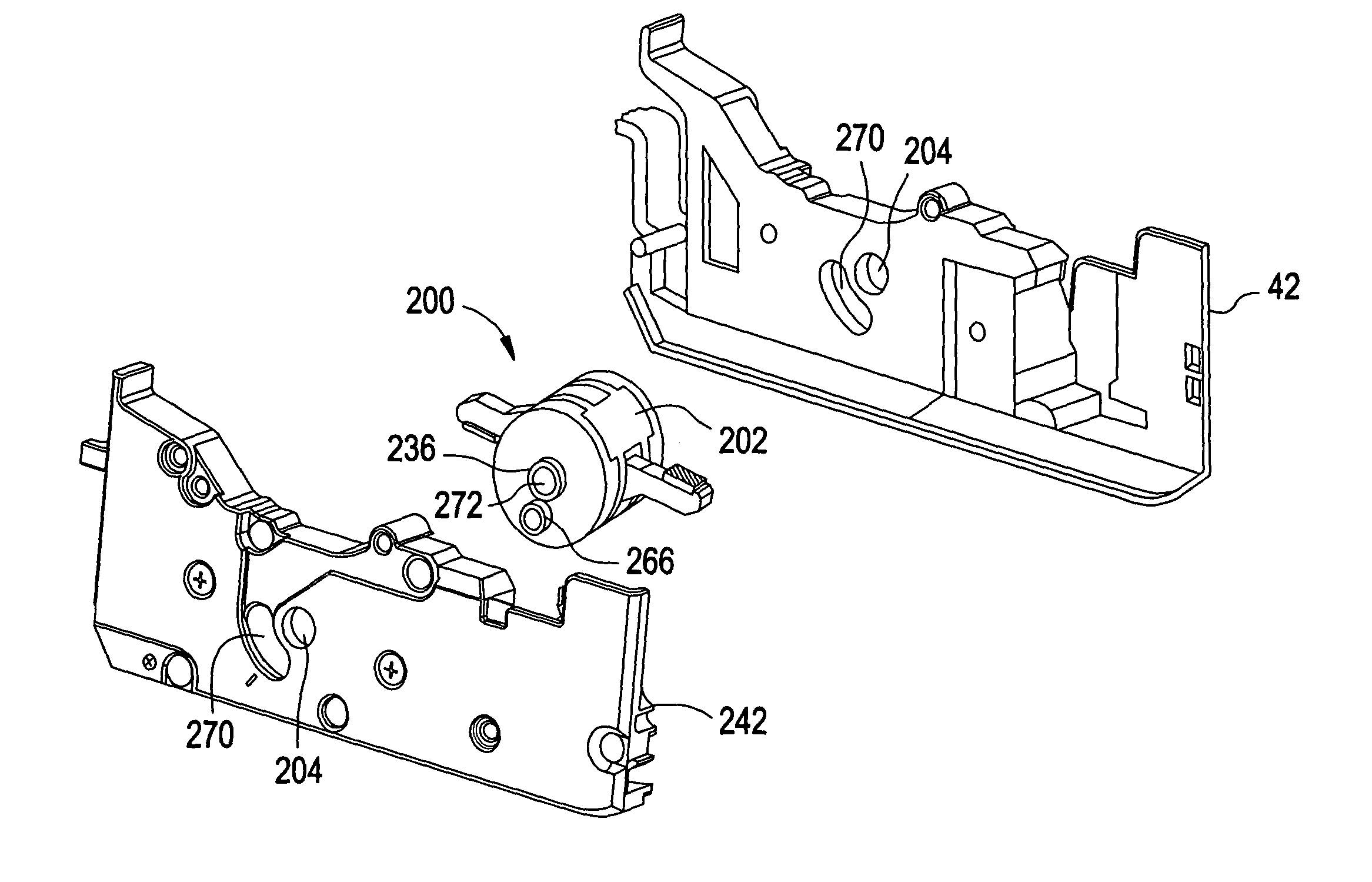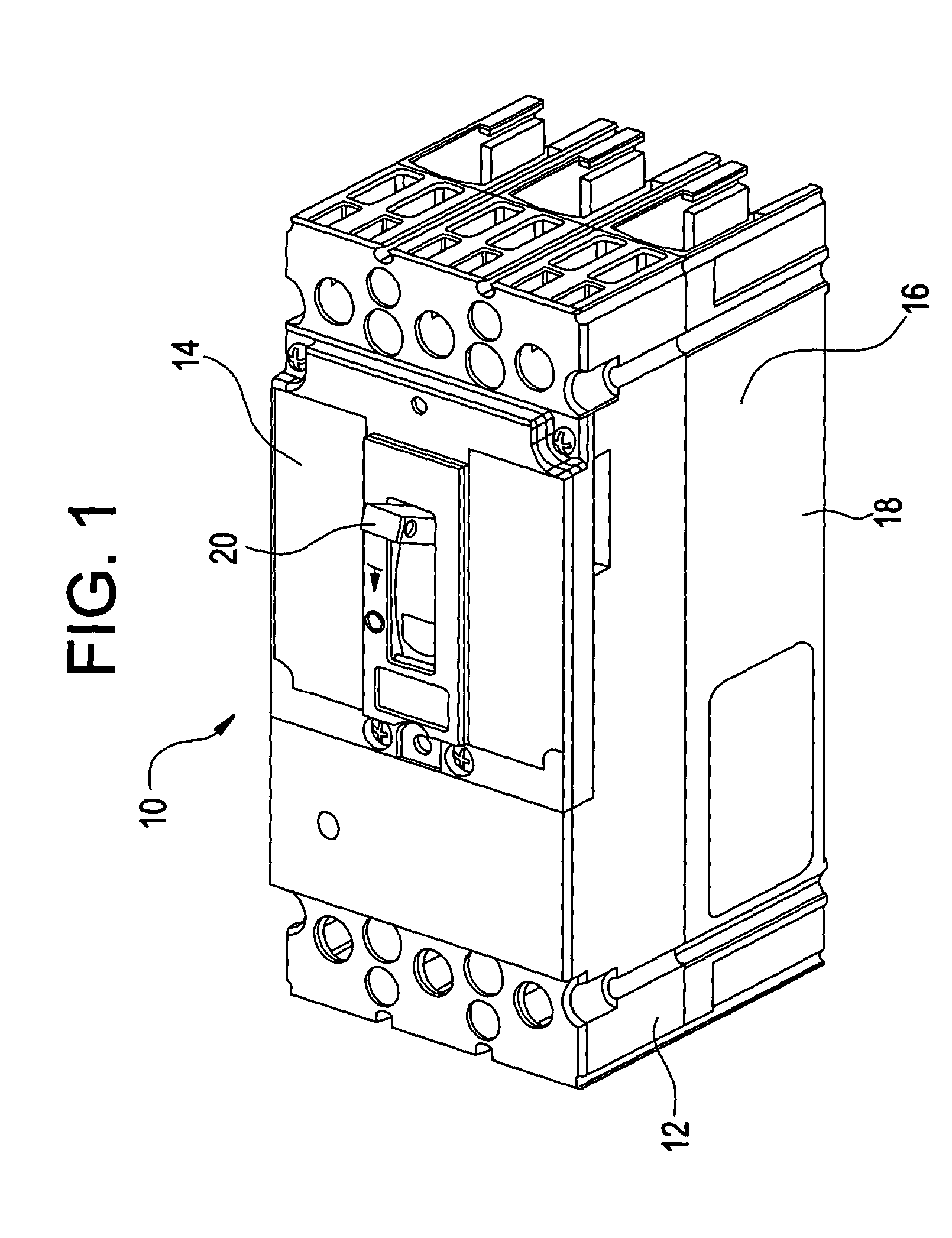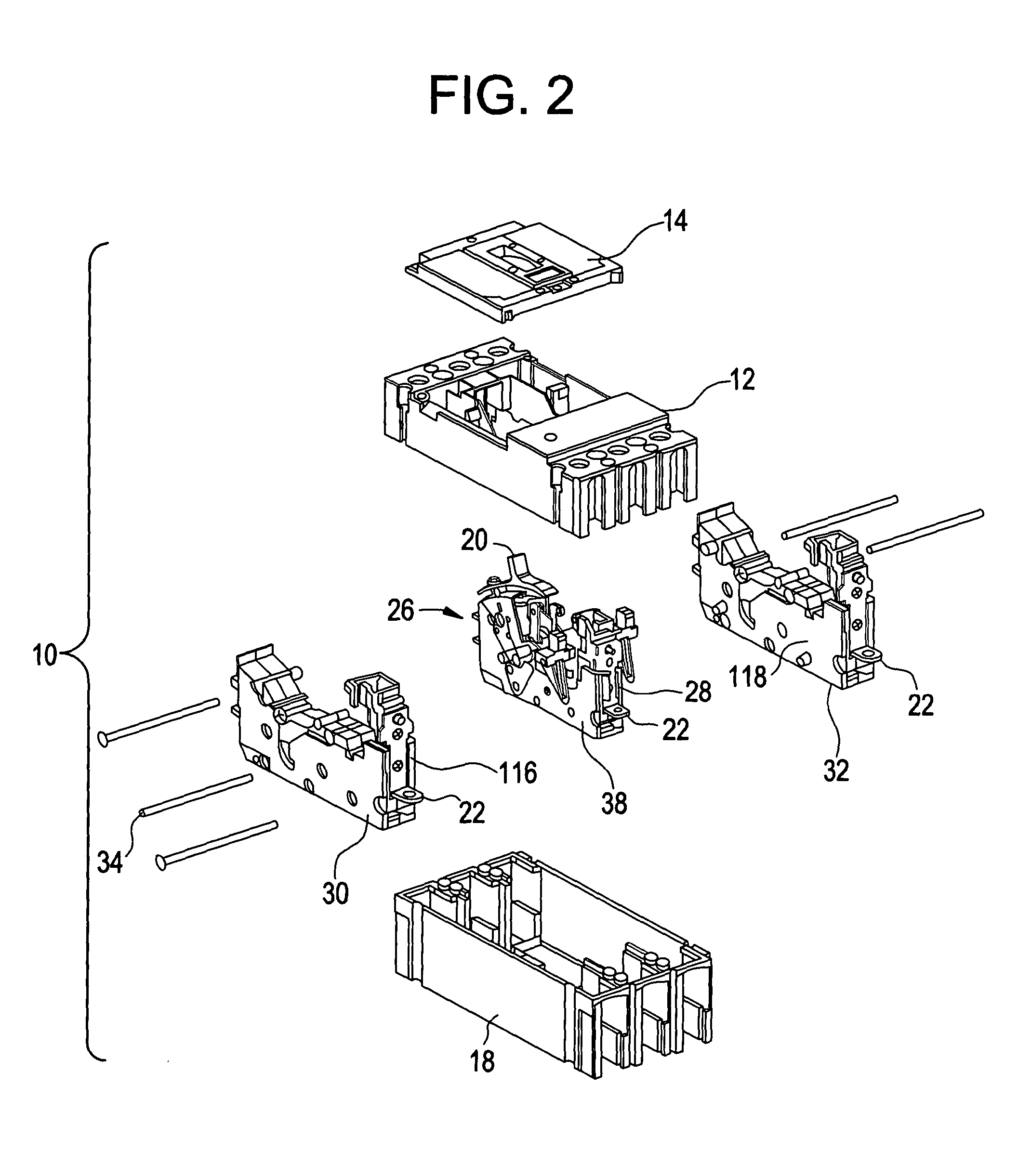Isolation cap and bushing for circuit breaker rotor assembly
a technology of isolation cap and bushing, which is applied in the direction of circuit-breaking switch contacts, circuit-breaking switches, relays, etc., can solve the problems of dielectric failure, arcing often occurring between, and arcing between other components of circuit breaker
- Summary
- Abstract
- Description
- Claims
- Application Information
AI Technical Summary
Benefits of technology
Problems solved by technology
Method used
Image
Examples
Embodiment Construction
[0015] Referring to FIG. 1, an embodiment of a molded case circuit breaker 10 is generally shown. Circuit breakers of this type generally have an insulated case 16 having a cover 14 attached to a mid-cover 12 coupled to a base 18. A handle 20 extending through cover 14 gives the operator the ability to turn the circuit breaker 10“on” to energize a protected circuit (as shown in FIG. 3), turn the circuit breaker “off” to disconnect the protected circuit (not shown), or “reset” the circuit breaker after a fault (not shown). A plurality of line-side contact and load-side straps also extend through the case 16 for connecting the circuit breaker 10 to the line and load conductors of the protected circuit. The circuit breaker 10 in FIG. 1 shows a typical three phase configuration, however, the present invention is not limited to this configuration but may be applied to other configurations, such as one, two, four, or more phase circuit breakers.
[0016] Referring to FIG. 2, the handle 20 i...
PUM
 Login to View More
Login to View More Abstract
Description
Claims
Application Information
 Login to View More
Login to View More - R&D
- Intellectual Property
- Life Sciences
- Materials
- Tech Scout
- Unparalleled Data Quality
- Higher Quality Content
- 60% Fewer Hallucinations
Browse by: Latest US Patents, China's latest patents, Technical Efficacy Thesaurus, Application Domain, Technology Topic, Popular Technical Reports.
© 2025 PatSnap. All rights reserved.Legal|Privacy policy|Modern Slavery Act Transparency Statement|Sitemap|About US| Contact US: help@patsnap.com



